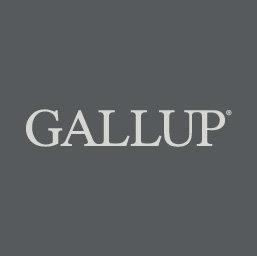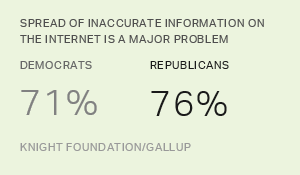A recent Knight Foundation/Gallup report on Americans' perceptions of the media and its role in democracy contains many alarming findings for those who work in the media, and for Americans concerned about the relationship between a free press and the public.
For example, Americans are much more likely to say the media supports our democracy "very poorly" or "poorly" (43%) as to say it supports democracy "very well" or "well" (28%). Less than half of Americans (44%) say they can name an objective news source. And only 27% feel very confident in their ability to distinguish factual news from opinion.
These trends in Americans' confidence in the media, especially when viewed over time, are troubling, if not downright depressing. But there is some positive news. There are four notable areas of consensus found in the report that could present a path forward for the media.
1. The vast majority of Americans agree that the media plays an integral role to democracy. Eighty-four percent say that the media is either "critical" or "very important" to our democracy, mainly for making sure Americans have the knowledge they need to be informed about public affairs, as well as for holding leaders in all sectors accountable for their actions. Although the media receives poor marks, Americans still view the media as important.
2. Americans of all political stripes see the spread of inaccurate information on the internet as a major problem, with 76% of Republicans, 71% of Democrats and 75% of independents holding this view. These data suggest there is broad support in the U.S. for some method of reducing inaccuracy in online media reporting.
3. Nearly six in 10 Americans (57%) believe major websites using algorithms to select some news stories and excluding others based on past history is a major problem for democracy. Party affiliation does not temper this sentiment, as 60% of Republicans, 54% of Democrats and 58% of independents consider news aggregators' pre-selection of stories a major problem. Americans are concerned that passive story selection prevents readers from seeing stories from a wide array of sources.
4. Seven in 10 Americans (71%) say they receive a mix of liberal and conservative viewpoints from their media exposure. Only 16% report getting all or most of their news from liberal sources, and 12% report receiving all or most news from conservative sources. Given that 60% of Americans say it is a major problem to choose news sources that solely reflect one's point of view, the good news is that most Americans say they avoid this problem by getting news from both sides of the ideological spectrum.


